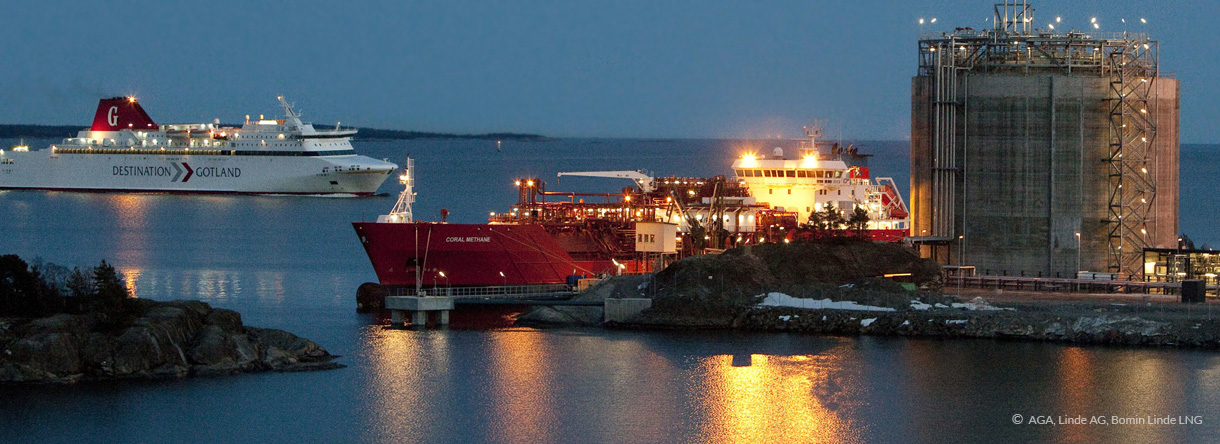As part of the implementation of the globally binding roadmap to reduce CO2 emissions from shipping, the authoritative International Maritime Organization (IMO) has now published the important so-called 4th Greenhouse Gas Study. “The study shows that the industry is on the right track,” said Ralf Nagel, Chief Executive Officer of the German Shipowners’ Association (VDR) in an initial summary. He said the report documented how the shipping industry has continued the positive trend of decoupling emissions growth from global growth in maritime trade.
The study tracks a 40 per cent increase in maritime trade between 2008 and 2018, with a simultaneous ten per cent reduction in CO2 emissions from maritime shipping over the same period. Moreover, the world’s merchant fleet had grown by more than half in terms of tonnage over the same period. According to the study, international shipping only accounted for around two per cent of global CO2 emissions in the year 2018.
The VDR therefore considers these results encouraging: “The findings clearly reflect the industry’s extensive and costly yet successful efforts to become greener. Shipping remains the most environmentally friendly means of transportation by far,” said Nagel. “The data also shows that the IMO's and the industry's target of halving CO2 emissions by the year 2050 is realistic.”
However, Nagel added, even with this latest study it was still clear that improvements in terms of technical efficiency alone would not be sufficient to achieve a halving of the emissions. Looking ahead to 2050, the study assumes that, taking account of long-term economic and energy scenarios, global CO2 emissions from shipping will then be between ten and 30 per cent higher than in 2008. “Despite using more accurate methods of measuring and more recent data, the findings of the fourth study come in well below the exaggerated forecasts of 50 to 250 per cent in the previous third report,” said the CEO.
Moreover, the plausible scenarios regarding future demand for maritime transport around the world, which form the basis for this latest report, were likely to turn out to represent the upper end of the spectrum, as the drastic impact of the COVID 19 pandemic, for example, could not yet be included in the projections: “For the foreseeable future at least, the consequences of the pandemic will have a considerable negative impact on the global economy and thus also on shipping.”
Yet even if maritime trade were not to grow as much as it did in the past, the VDR takes the view that the development of marketable, CO2-free fuels remains crucial, said Nagel: “We succeeded in decoupling emissions from the industry’s growth; at the time we have also made ships more efficient, thereby reducing emissions – and we will continue to do so. What it is needed now, however, is a powerful, global drive in innovation in the effort to find alternative fuel for ocean-going ships.”
For this reason, last year the industry already proposed a levy on the cost of a tonne of fuel with the aim of creating a USD 5 billion research and development fund to support the development of commercially viable ships with zero greenhouse gas emissions. Nagel: “To achieve our goal of a decarbonised future, the governments represented in the IMO must support the adoption of our fund proposal as soon as possible.”
The IMO members had already adopted the concrete, globally applicable roadmap for reducing global CO2 emissions from shipping as early as 2018. The plan stipulates that global CO2 emissions from shipping should be at least halved by 2050 (absolute reduction compared to 2008). By the year 2100 at the latest, ocean-going vessels should no longer emit any CO2 at all. The member states also agreed on interim targets according to which ships should reduce their CO2 emissions in relation to transport performance by at least 40 per cent by the year 2030. A reduction of 70 per cent is to be aimed for by 2050.
Based on current planning, the binding decision on CO2 reduction measures will be reviewed by the IMO in 2023 and, if necessary, complemented by adding even more stringent measures. The strategy thus accurately reflects the data and targets that the international community set itself in the Paris Climate Treaty.
“The German shipowners are committed to the goal of climate-neutral ship operation as soon as possible,” said the CEO. “The challenge for the shipping industry and the international community is, however, to reduce CO2 emissions as stipulated, without simultaneously restricting the capacity needed in maritime trade. Governments worldwide must – in their own interests – also work together with the industry and many other players, and also make financial resources available for this technological revolution. Without shipping there would be no global trade of any significance – as has been clearly shown by this pandemic.”
About the German Shipowners’ Association
The German Shipowners' Association (Verband Deutscher Reeder, VDR) is responsible for representing the common business and social policy interests of German shipping companies at federal and state government level as well as in relation to European and international bodies. The VDR was established in 1907, and in 1994 it merged with the Association of German Coastal Shipowners. With a membership of around 200, the VDR represents the majority of Germany’s merchant fleet. Further particulars are available at www.reederverband.de.
Press photos of Ralf Nagel: https://www.reederverband.de/presse/pressefotos.html
Contact for media enquiries: Christian Denso
+49 40 350 97-238 or mobile phone +49-162-2022005
